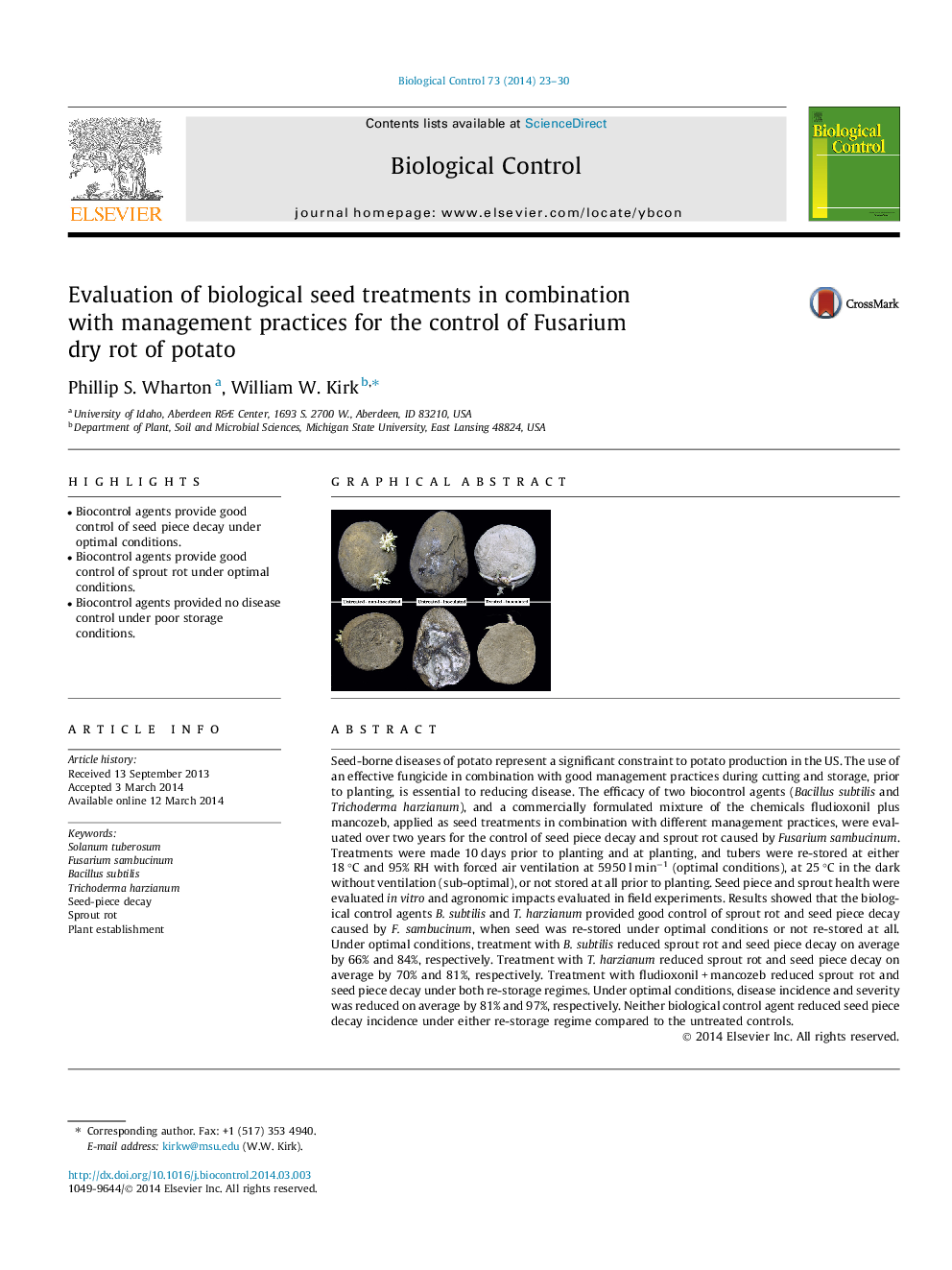| Article ID | Journal | Published Year | Pages | File Type |
|---|---|---|---|---|
| 4503916 | Biological Control | 2014 | 8 Pages |
•Biocontrol agents provide good control of seed piece decay under optimal conditions.•Biocontrol agents provide good control of sprout rot under optimal conditions.•Biocontrol agents provided no disease control under poor storage conditions.
Seed-borne diseases of potato represent a significant constraint to potato production in the US. The use of an effective fungicide in combination with good management practices during cutting and storage, prior to planting, is essential to reducing disease. The efficacy of two biocontrol agents (Bacillus subtilis and Trichoderma harzianum), and a commercially formulated mixture of the chemicals fludioxonil plus mancozeb, applied as seed treatments in combination with different management practices, were evaluated over two years for the control of seed piece decay and sprout rot caused by Fusarium sambucinum. Treatments were made 10 days prior to planting and at planting, and tubers were re-stored at either 18 °C and 95% RH with forced air ventilation at 5950 l min−1 (optimal conditions), at 25 °C in the dark without ventilation (sub-optimal), or not stored at all prior to planting. Seed piece and sprout health were evaluated in vitro and agronomic impacts evaluated in field experiments. Results showed that the biological control agents B. subtilis and T. harzianum provided good control of sprout rot and seed piece decay caused by F. sambucinum, when seed was re-stored under optimal conditions or not re-stored at all. Under optimal conditions, treatment with B. subtilis reduced sprout rot and seed piece decay on average by 66% and 84%, respectively. Treatment with T. harzianum reduced sprout rot and seed piece decay on average by 70% and 81%, respectively. Treatment with fludioxonil + mancozeb reduced sprout rot and seed piece decay under both re-storage regimes. Under optimal conditions, disease incidence and severity was reduced on average by 81% and 97%, respectively. Neither biological control agent reduced seed piece decay incidence under either re-storage regime compared to the untreated controls.
Graphical abstractFigure optionsDownload full-size imageDownload as PowerPoint slide
